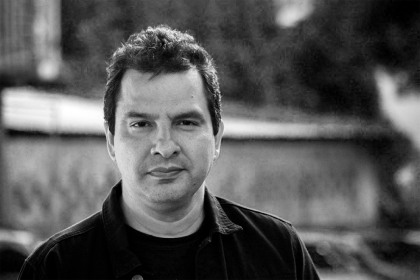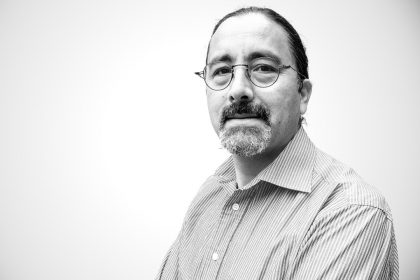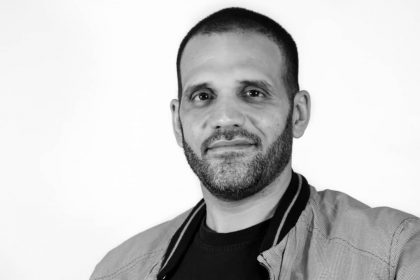ABOUT THE AUTHOR:

Calixto Ävila
Specialist Lawyer in Human Rights and Master in Public International Law. Provea representative in Europe.
Calixto Ävila │ The de facto government relies on international strategies to evade its human rights obligations and to try to neutralize international protection bodies. The government, an expert in saving time and creating smoke screens, invests important resources so that human rights are not justiciable either internally or internationally.
Committing systematic human rights violations requires, as a complement, the impunity of the perpetrators, and therefore the judicial system and the internal control bodies are neutralized, while at the same time international instances are also neutralized. Proof of the latter is the pretension to take away from the Venezuelan population their right to resort to the Inter-American System, by denouncing the American Convention and the subsequent withdrawal from the OAS. That government knows that this work is not complete if the United Nations Universal System, the International Labor Organization and the International Criminal Court can exercise their role as international bodies in accordance with international law that compels Venezuela.
The responses of the de facto government to the debate on the Venezuelan situation at the Human Rights Council highlight several elements of the strategy to neutralize that institution, to obstruct its resolutions and to limit the Office of the High Commissioner for Rights Humans. Those strategies are not intended to protect the Venezuelan people, but rather the perpetrators of human rights violations, in a logic that contradicts the meaning of their international obligations, in particular the principle of good faith that rules international treaties.
We can identify the following elements of this strategy, and which are put into action by agents of the State, representatives of the de facto government:
- To disqualify the Human Rights Council arguing double standards, the political use of human rights and differential treatment towards developing countries in order to change political regimes. As a member of the Council, not only is that government far from complying with the highest human rights standards, but also it disqualifies that body of which it is now part.
- To divert attention to other human rights problems present in countries whose governments are not related to it (the de facto government), keeping silent about what happens in countries governed by their allies, contradicting their own demand that double standards should not be applied.
- To make selective and distorted use of the principles of the United Nations Charter, seeking to generate debate in terms of sovereignty and non-intervention in internal affairs. On one hand, it leaves out principles such as the fulfillment, in good faith, of the obligations contracted under the Charter and, on the other hand, it seeks to apply the principle of non-intervention, ignoring that the Charter says that human rights are not matters “essentially of the internal jurisdiction of the States ”.
- To apply the principles of sovereignty and non-intervention in the performance of the United Nations within the country, controlling and conditioning the actions of these mechanisms in the field of human rights at the internal level, especially the Office of the High Commissioner. This strategy was applied since 2016 to the agencies of the United Nations System within Venezuela, subordinating and minimizing their actions, which decisively contributed to the worsening of the complex humanitarian emergency that the country is experiencing today.
- To state, in the Council’s debates, that there is a media campaign against Venezuela while avoiding to give “objective and reliable information” (according to the Council’s principles) to contribute to the “interactive dialogue” that governs that body. In the absence of national official data, that government takes the debate to the field of propaganda, extending a propagandist strategy to the United Nations that had been internally implemented for a long time.
- To present the friendly face of a government willing to cooperate, if and only if, the debate takes place exclusively in the field of cooperation. To do so, it simultaneously promotes resolutions on Topic 2 of the Council’s agenda, which refers to cooperation with the system, and manipulates its results as “victories” in the Council. Internally, it dusts the proposal for a new National Human Rights Plan, which was recommended by the Council itself during the 2011 Universal Periodic Review and was enacted in 2016 without a true process of inclusive and open dialogue and call for citizen participation.
- To prevent the entry of the Fact finding Mission, a mechanism approved by the Council of which it is now a part, and to disqualify the resolution that created it (Resolution 42/25), arguing that it was the result of a “circumstantial majority” and that it was politically motivated. Although the report of the Mission, which has been operating outside the country since January, will be published in September, the de facto government representative in Geneva now anticipates that the report will be “riddled with lies.”
- To delimit the commitment of that government to allow the presence of the thematic mechanisms (special rapporteurs and working groups) to those that it believes could be functional to its propaganda and self-victimization. Without any tangible results, for months, that government has announced that it is going to invite the Special Rapporteur on the right to development and the Special Rapporteur on unilateral coercive measures, when there are at least 40 other mechanisms that could visit Venezuela.
- To launch false information such as the fact that the High Commissioner is not dealing with the situation in other countries, despite the fact that in exercise of her mandate she must do so and has indeed done so. To affirm that in her reports there is no balance in the treatment of information, that the information is biased and that they can be used as an instrument for a media campaign against Venezuela. Furthermore, senior spokesmen for the de facto government do not hesitate to treat the High Commissioner as a liar and even to ridicule her figure by calling her High “as-if-nothing”.
- To carry out punitive expeditions against the victimized sectors mentioned in the reports and exalt the victimizers, during the hours or days following the presentation of the reports of the High Commissioner. Thus, Maduro announced all support for the FAES after its dissolution was requested, and recently, deputies to the National Assembly were arbitrarily detained after the latest report reported attacks on that sector of the population.
The strategy to hinder the Universal System and delay its actions is not the product of improvisation and, on the contrary, reveals a well-articulated discourse. However, it is not a new thing for Council members who have seen similar scripts in other governments that deny their peoples the right to international remedies. Hence, the work of national and international human rights organizations is of vital importance for the functioning of the Universal System. Aware of this, the United Nations System itself has a mechanism to protect the civil society that comes to the UN. It is a high-level mechanism regulated in September 2019 in General Assembly Resolution 42/28, which involves the Assistant Secretary-General for Human Rights and the President of the Council.
It is clear that only with an independent civil society is it possible that international human rights systems can protect peoples against authoritarianism and effectively contribute to the recovery of democracy.
ABOUT THE AUTHOR:

Calixto Ävila
Specialist Lawyer in Human Rights and Master in Public International Law. Provea representative in Europe.




